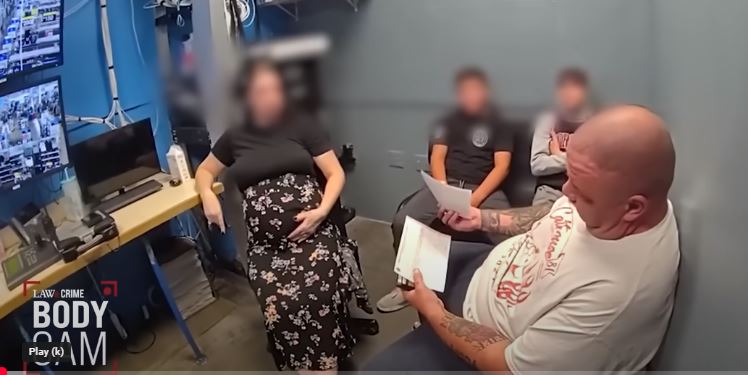Opinions – Everyone’s got one or two or three: A Look at Michigan Rules of Evidence 701-707
Lay Versus Expert Opinions (Rules 701 & 702)
Before delving into specific rules, it’s crucial to establish the fundamental distinction between lay witnesses and expert witnesses.
Lay witnesses are individuals with everyday experiences and observations, while experts possess specialized knowledge, skill, or training in a particular field.
This distinction directly impacts the admissibility and weight given to their opinions.
Rule 701 governs lay witness opinions. Here, opinions are only admissible if they are:
- Rationally based on the witness’s personal perceptions: This means the opinion must stem directly from the witness’s observations of the events or circumstances in question. For example, a witness can testify that a car “looked like it was speeding” if they observed its excessive speed firsthand.
- Helpful to a clear understanding of the witness’s testimony or to determining a fact in issue: The opinion should shed light on the witness’s observations or assist the jury in comprehending the facts of the case. An example would be a witness stating that a certain behavior “made me feel threatened” when explaining their emotional state during an incident.
Rule 702, on the other hand, empowers expert witnesses to offer opinions based on their specialized knowledge. However, their testimony must meet four key criteria:
- Relevance: The expert’s knowledge and opinion must be relevant to the specific issues at hand in the case.
- Reliability: The expert’s field of expertise, methodology, and conclusions must be grounded in reliable principles and methods recognized by the relevant scientific community.
- Factual Basis: The expert’s opinion must be based on sufficient facts or data, either presented in evidence or personally observed.
- Application: The expert must reliably apply their expertise and methods to the specific facts of the case at hand.
Have your rights been violated?
Have your driving priviledges been revoked?
Has your professional license been suspended?
Second Amendment rights taken away?
Have you been charged with a crime?
Call our office to see if we can help
Komorn Law 248-357-2550
Rule 703 provides further clarity on the sources of an expert’s opinion. Experts can base their opinions on facts or data in the case they have been made aware of or personally observed, even if not yet formally admitted into evidence. This allows for greater flexibility in utilizing their expertise.
Rule 704 addresses the question of “ultimate issues.” Opinions are not inadmissible simply because they touch upon the core question of the case, known as the “ultimate issue.” For example, in a medical malpractice case, an expert may be able to offer an opinion on whether the doctor’s actions fell below the standard of care, even though this goes directly to the heart of the jury’s decision.

Rule 705 deals with the timing of the disclosure of the factual basis for an expert’s opinion. Generally, experts can state their opinion and its rationale without first disclosing the underlying facts or data. However, the opposing party may have the opportunity to delve into these details during cross-examination, ensuring transparency and allowing the jury to assess the basis of the opinion.
Rule 706 empowers the court to appoint independent expert witnesses in certain situations. This might occur when both parties present conflicting expert opinions, or when the court deems neutral expertise crucial for fair and balanced adjudication.
Finally, Rule 707 governs the use of learned treatises for impeachment purposes. Learned treatises are scholarly publications in a field of expertise. This rule allows for cross-examining expert witnesses by bringing to their attention statements in reputable treatises that contradict their testimony. However, these treatises are not admissible as standalone evidence and can only be read into the record for impeachment purposes.
The Impact of Opinion Testimony: Weighing the Scales
Understanding the intricacies of Rules 701-707 highlights the delicate dance between lay and expert opinions in the courtroom. These rules safeguard against unreliable or prejudicial pronouncements while enabling the valuable contribution of both everyday understanding and specialized knowledge. The jury ultimately acts as the arbiter of fact, tasked with weighing the credibility and persuasiveness of all opinions presented, whether from lay witnesses or experts.
Important:
This article provides a simplified overview of the Michigan Rules of Evidence for informational purposes only. It should not be interpreted as legal advice. When facing legal matters, always consult with a qualified attorney for professional guidance.
The Michigan Rules of Evidence are subject to change over time. Always consult the latest official version for accurate information.
Here is the link to the Michigan Rules of Evidence Handbook. Check the footer for the latest update.
Related Articles
Evidence in Michigan Courts: A Guide to Rules 401-411
Understanding the Foundation: A Summary of Michigan Rules of Evidence 401-411 The Michigan Rules of Evidence (MRE), specifically Rules 401-411, lay the groundwork for what evidence can be presented in court and how it might influence the outcome of a case. This...
Evidence in Michigan Courts: A Guide to Rules 301-302
Michigan Rules of Evidence: A Guide to Rules 301-302 Presumptions, those inferences drawn from established facts, play a crucial role in both civil and criminal cases in Michigan. However, their application is carefully regulated by the Michigan Rules of Evidence,...
Evidence in Michigan Courts: A Guide to Rules 201-202
Michigan Rules of Evidence: A Guide to Rules 201-202 Understanding the Michigan Rules of Evidence is crucial for anyone involved in legal proceedings within the state. This article focuses on two key rules: 201** (Judicial Notice of Adjudicative Facts)** and 202**...
Evidence in Michigan Courts: A Guide to Rules 101-106
Navigating the legal system can be daunting, especially when it comes to understanding the rules governing evidence. This article sheds light on the first six articles of the Michigan Rules of Evidence (MRE), providing a helpful summary for legal professionals,...
More Posts

When Can Police Take Your Dash Cam?
You work hard. Now get ready to work harder to prepare to give more.In Michigan, police can take your dashcam footage in specific situations, primarily when they believe it could serve as evidence in a criminal investigation. Michigan law permits officers to seize...

People who are going to need a Lawyer – November 12, 2024
People who are going to need a LawyerMan so drunk field sobriety tests were ‘too dangerous’ sentenced to life in prison for repeated DWI convictions‘Several terabytes’: Diddy prosecutors shed light on ‘voluminous’ discovery, including iCloud accounts and dozens of...

Cambridge Analytica data breach comes before court
Oral arguments in Facebook v. Amalgamated Bank will beginThe justices are set to review securities law as they hear arguments in a significant case linked to the 2015 data breach involving Cambridge Analytica and Facebook. The tech giant’s effort to fend off federal...

Search and Seizure – Consent or Plain view
The Fourth Amendment was established to protect individuals from unreasonable searches and seizures, yet there are exceptions.In Michigan, understanding the concepts of search and seizure, particularly regarding consent and plain view, is crucial for both law...

A drunk driving investigation, a car wreck and a blood draw
A Case Summary: People v. Blake Anthony-William BartonOn October 11, 2024, the Michigan Court of Appeals issued a decision in the case People of the State of Michigan v. Blake Anthony-William Barton. The case involved a drunk driving investigation following a car...

Police say they can tell if you are too high to drive
Police say they can tell if you are too high to drive. Critics call it ‘utter nonsense’Haley Butler-Moore sped up to pass a semi on the highway when she suddenly saw the police lights. She’d left Albuquerque hours earlier, heading to a Halloween party in Denver. Tired...

Cannabis – The Rise and Fall and Trail of Survivors Pile Up
Thieves make off with 1,000 pounds of premium flower in cannabis from a corporate grower in Michigan. Then, the GM sells off 650+ pounds to pay employees.The recent theft of over 1,000 pounds of marijuana from 305 Farms, a corporate cannabis grower in West Michigan,...

If you have an LLC you must comply or face fines and possible prison
You work hard. Now get ready to work harder to prepare to give more.If you own or are a member of an LLC.You have a deadline of January 1, 2025Call us we can take care of it for you. 248-357-2550The new Beneficial Ownership Reporting requirements for LLCs and other...

Compounding Charges Laws in Michigan
Understanding Compounding Charges Laws in Michigan Compounding charges refer to the illegal act of accepting or agreeing to accept a benefit in exchange for not prosecuting a crime. In Michigan, this is considered a serious offense, and the law specifically prohibits...

Harris unveils new proposals targeting black men with cannabis legalization
"Harris unveils new proposals targeting Black men as she looks to shore up Democratic coalition" CNNAmid the ongoing national issues, Vice President Kamala Harris introduced new initiatives on Monday aimed at addressing the needs of Black men as she works to bolster...















